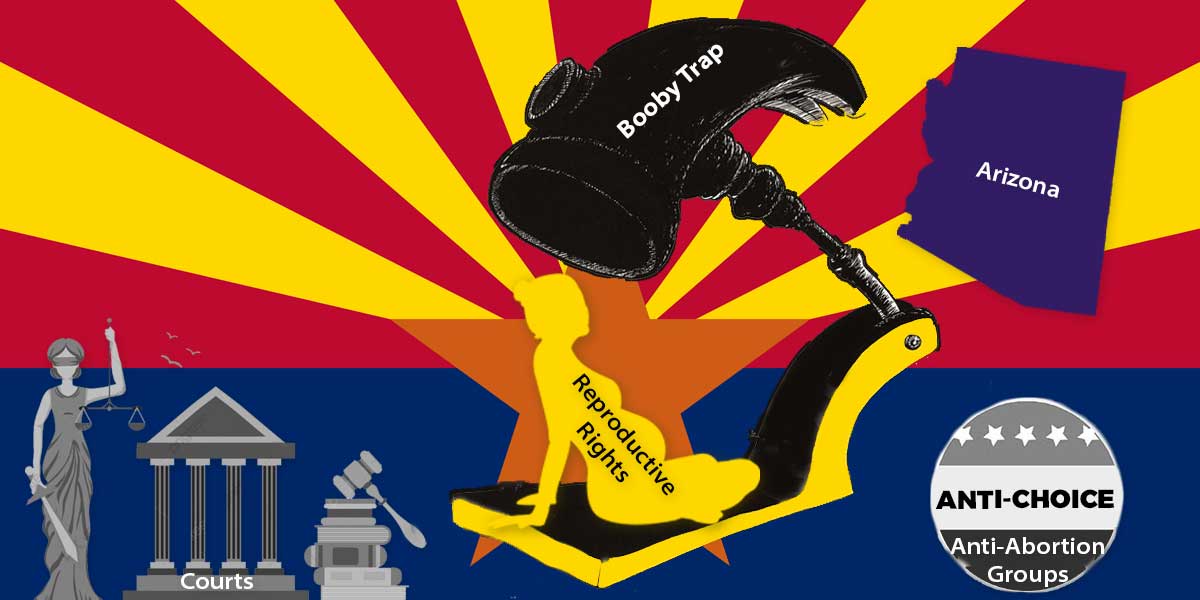
04 May 2021 New Arizona Law Criminalizes Abortion Due to Genetic Fetal Abnormality
Arizona has passed a broad-based law that makes it a felony for a physician to perform an abortion because of a fetal genetic abnormality or for anyone to fund an abortion for that reason. The law also allows the father or, if the mother is under age 18, the grandparents of a fetus aborted due to genetic abnormalities, to sue.
Republican Governor Doug Ducey, who has never failed to sign a piece of anti-abortion legislation, according to Yahoo!News, signed the measure, SB 1457, into law on April 27.
Although the new law is unlikely unconstitutional, Arizona joins several other states with Republican-controlled legislatures that have enacted anti-abortion laws deliberately destined for challenges before the newly majority-conservative U.S. Supreme Court.
Arizona Anti-Abortion Law Deems Embryos Legal Persons
In addition to criminalizing the doctor-patient relationship for pregnant women, the new Arizona law also contains a number of provisions popular with anti-abortion activists, including a ban on mail delivery of abortion medications and a prohibition on state funding for organizations that provide abortions. Among the most concerning aspects of the law is a fetal “personhood” clause that would provide an avenue for the state to charge women who have an abortion, or potentially even those who lose a child through accident or miscarriage, with murder or child endangerment.
As we have reported, several states have enacted personhood laws that would confer legal personage and full civil rights on unborn embryos, as yet untested in court and intended as alternate paths to a U.S. Supreme Court challenge of Roe v. Wade. The landmark legislation, which established a woman's right to choose an abortion as a protected right to privacy guaranteed by the Fourteenth Amendment to the U.S. Constitution, has been under attack by right-wing and religious conservatives since its enactment in 1973. Now following the death of liberal Justice Ruth Bader Ginsberg and the appointment of three conservative justices by the Trump administration, the Court’s 6-3 conservative majority has energized the anti-abortion movement, resulting in a flood of state anti-abortion laws designed to test Roe v. Wade.
Reproductive Medical Staff May Face Felony Charges
The Arizona law does carve out an exemption to the personhood clause for in vitro fertilization (IVF), a fertility treatment that can result in multiple embryos, some of which may be discarded or never used. In a statement of opposition to the law, Democratic legislators raise concerns that the scope of the exemption is unclear, calling into question the potential liability of IVF clinic staff, anesthesiologists, nurses or cryopreservation technicians.
The anti-abortion law also provides an exemption for a “lethal fetal condition,” defined as a reasonable certainty that the baby would not live beyond three months past birth. The amendment was added at the request of two Republican women legislators, with intent to prevent a woman from being forced to carry to term a fetus not able to survive. But one Democratic legislator, a physician, questioned the ability of doctors to make that determination.
Families Trapped Between Anti-Choice Movement and Courts
SB 1457 is a terrible law for a lot of reasons. The measure jeopardizes the relationship of trust that is essential between doctor and patient. Will women be able to trust that their doctors are giving them their best advice, or will they fear their doctors will advise them based on potential liability? Will patients be honest with their doctors about why they desire an abortion?
But this Arizona law was not designed to be good legislation. It was designed as ammunition in the war against a woman’s right to choose.
Earlier in April, a federal appeals court narrowly reversed two lower court decisions that blocked enforcement of a similar Ohio law, enacted in 2017, ruling that prohibiting abortions due to a Down syndrome diagnoses does not violate a woman’s right to an abortion. A South Carolina abortion law also is on hold and is being challenged in federal court.
The stage is undeniably being set for this battle to head to the Supreme Court. I envision the flood of restrictive new laws as a mousetrap or “booby trap.” Stuck inside are innocent families, intended parents and healthcare professionals, trapped between conservative state legislators and anti-abortion agitators and the courts.
The only thing that is unclear is which one of these new laws will serve as the trigger. The results may dramatically change the American landscape for reproductive rights for generations. In the meantime, these onerous laws will prevent many women from getting the independent medical care and advice they need, which could lead to even more dangerous outcomes for all involved.

















